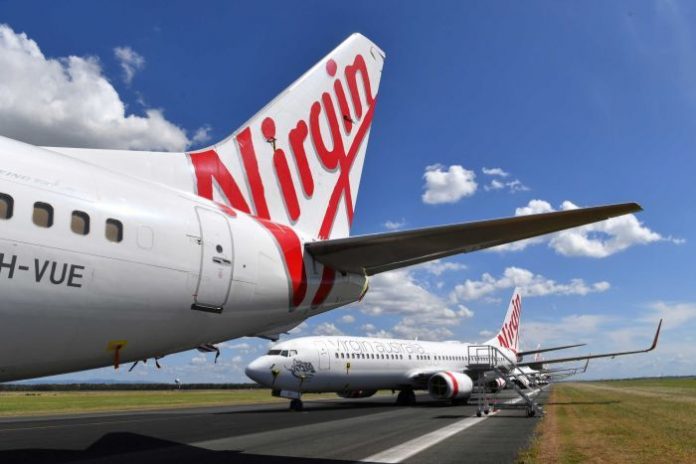It has been announced that Australia’s second largest carrier, Virgin Australia, has entered into voluntary administration. With a crippling $5 billion debt, the decision has come in the hopes that the airline will be able to recapitalise and emerge ‘in a stronger financial position on the other side of the COVID-19 crisis’. Deloitte has been appointed to help the airline restructure and refinance. The airline will continue to operate domestic and international flights for the purposes of transporting goods and essential workers. There are 16,000 jobs at risk.
Firstly, who owns Virgin Australia?
There are five international companies that make up over 90% of Virgin Australia’s shareholders. Richard Branson’s Virgin Group holds roughly 10%, while Etihad Airways, Singapore Airlines, Nanshan Group and HNA each hold around 20-21% of shares.
Branson is already supporting Virgin Atlantic, which is Virgin Group’s flagship unit and of which he owns a 51% share, with an offer of £215 million (AUD$422,631,950). He has said he will not otherwise be collecting licensing fees from other Virgin-branded companies.
Why hasn’t there been a government bail out?
Virgin Australia asked the Federal Government for a $1.4 billion bailout package, but the government did not think it appropriate to provide that level of support using taxpayer money to one business. It is instead offering a $1.2 billion package to the wider aviation industry to maintain competition. Treasurer, Josh Frydenberg, has reinforced that while the Government is keeping an eye on the situation and hoping for Virgin’s survival, the airline has ‘some very significant shareholders and some very deep pockets, and that should be the first point of call for the business’.
In more recent news, the Queensland and New South Wales governments have been discussing support packages. These discussions are turning sour as any offers made by the NSW Government are conditional on Virgin Australia Headquarters moving from Queensland to NSW. Queensland Development Minister, Cameron Dick, has returned fire with a stern message, ‘Back off. Back right off. Just don’t go there.’ The tug-of-war between the Queensland and NSW Governments has become a battle of creating and saving jobs in each respective state.
What does it mean for consumers if Virgin Australia disappears?
Essentially, without Virgin Australia, Qantas will hold the monopoly as Australia’s only major airline carrier. As Shadow Services Minister, Bill Shorten, has stated “you’d have to believe in unicorns if you think that one large airline won’t see airfares go up”. The restructure itself already threatens a monopoly over less profitable routes, such as those to regional areas. The absence of competition will mean that consumers are less likely to see cheap flights, which may in turn affect an already struggling tourism industry.
What about my Velocity points?
Velocity, Virgin’s frequent flyer program, is not in administration. Consumers have been frantically making moves over the previous weeks to capitalise on the value of their points – some opting for redeeming retail vouchers holding lesser value, others transferring points to Velocity partner Singapore Airlines (a scheme which was temporarily suspended in early April). There has been no official statement from Velocity about what will happen to the Velocity points of its more than 10 million members. At this stage, the viability or even the continued existence of current Velocity points now remains to be seen.


![5 Reasons You Should Travel Alone Airplane [image source: chau nguyen/ http://thedevilhatessweatpants.blogspot.com.au ], crowd ink, crowdink, crowdink.com, crowdink.com.au](https://crowdink.com/wp-content/uploads/2016/08/Chau-airplane-218x150.jpg)





























